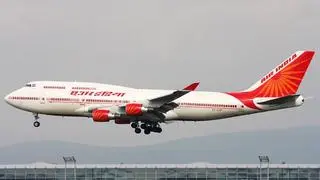At the Ethiopian Airlines training centre in Addis Ababa, Africa’s sole centre to boast a Boeing 787 simulator, pilots, engineers and technicians mull around. Many of them are women.
Zebiba Miftah, Manager, Market Development, Ethiopian Airlines, says supporting women aviation professionals is a given with Ethiopia's national carrier. Adjusting her colour coordinated traditional African headgear, she adds that one-third of the airline's employees are women.
But the figure is smaller when it comes to positions such as pilots and technicians. Late last year, Ethiopian Airlines (EA) operated an all-women flight on the Addis Ababa - Bangkok route.
Women filled every role on the flight, from the pilots and cabin crew to ramp operators and flight dispatchers on the ground. The historical flight was aimed at crystallising its overarching aim — to attract more women to take up aviation jobs.
Terming women as the continent's greatest untapped resource, Tewolde GebreMariam, Group Chief Executive Officer of Ethiopian Airlines, adds the airline is dedicated towards increasing the number of women in decision making positions. “We want to consistently groom and mentor female employees for top managerial, technical and operational positions,” adds the CEO.
“The role women play in our company is immense. They contribute to the airline's position as a leading carrier,” GebreMariam says.
EA’s all-female flight is the latest in a string of airlines to show gender parity.
In March, Royal Brunei, the national carrier of Brunei had an all-female trio of pilots and crew. Air Canada and Air India also operated long-haul flights staffed by female pilots, to coincide with the Women of Aviation Worldwide Week.
EA’s training centre cum aviation academy has been inspiring young African female students to give wings to their dreams. Busera Awel, Chief Commerical Officer, Ethiopian Airlines, says, “The aviation academy has been helping most women embark on an education that can suitably fill the skill gap for aviation professionals.” The academy is aiming to be a world-class aviation service training provider, even as EA is honing on its human resource development.
“Our main capital is employees. We have always ensured a cross-utilisation of employees,” says the CEO. This March, Malawi shattered its aviation glass ceiling with the announcement of the country’s first female Captain, Yolanda Kaunda, who was trained at EA's aviation academy. Miftah points out that even the “CEO has joined through EA's training academy”. The academy also had one woman pilot from Chad (a landlocked country in northern Central Africa).
EA commands the lion’s share of the pan-African passenger and cargo network operating the youngest and most modern fleet to 92 international destinations across five continents.
The writer was in Addis Ababa at the invitation of Ethiopian Airlines







Comments
Comments have to be in English, and in full sentences. They cannot be abusive or personal. Please abide by our community guidelines for posting your comments.
We have migrated to a new commenting platform. If you are already a registered user of TheHindu Businessline and logged in, you may continue to engage with our articles. If you do not have an account please register and login to post comments. Users can access their older comments by logging into their accounts on Vuukle.